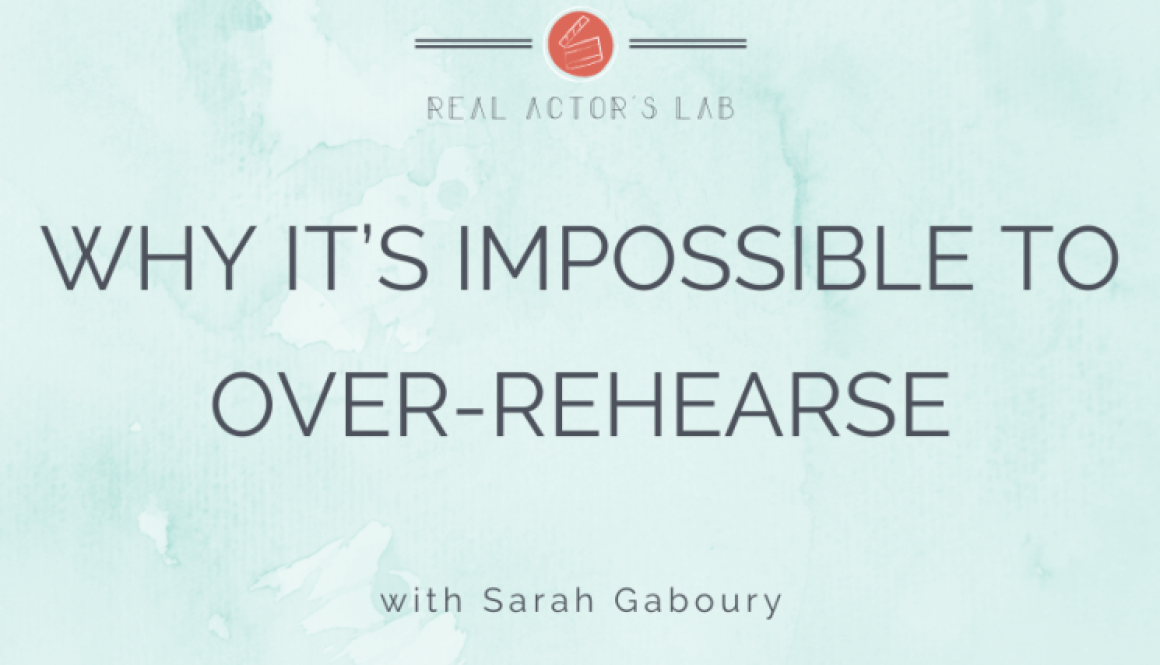Craft, technique, and why you can’t over-rehearse
It kind of blows my mind that pursuing craft and technique are almost controversial these days.
I get it. It’s kind of an attractive idea that you could simply work on freeing your instrument, memorize a bunch of words and give a performance the story deserves. I have just so so rarely seen that happen — and even in those rare cases, I tend to find certain aspects of the performance lacking and detrimental to the story.
There are cases where the actor is simply playing a role that is incredibly similar to themselves and it kind of works—but what happens when your personal instincts that feel good are just wrong for the story? What happens when your typical reaction to confrontation in life is to shut down but the story calls for strength? This is when I see actors unintentionally make the story about themselves.
I really don’t say this to be judgemental or critical of anyone’s process. I say this because this work really matters to me. It makes me think about how Larry Moss sat next to Stella Adler at a dinner party and she begged him not to “let it die,” meaning the craft. I’m grateful to him that he’s been such a big part of keeping it alive for me and so many others.
In this clip, I share a powerful example of how technique, craft, and rehearsal can create a recipe for mastery and lead to performances that feel almost transcendental.
This is why I don’t really think it’s possible to over-rehearse—if you learn how to release and let go.
CLASS CLIP TRANSCRIPTION
Sarah: The Presence book that I was listening to this morning, she was talking about concerts. She loves concerts…and seeing musicians when they’re really in the moment, and what happens and how they sort of transcend. And then she was talking about dancers and this friend of hers who had seen Mikhail Baryshnikov do this dance that Jerome Robbins had choreographed. And the first time they saw it, it was technically perfect, but didn’t have this deep impact. And then he saw it again like a year later and said it just completely blew his mind.
It’s the same dance, and it was the same choreography, but that he was so alive and present in a way that felt intangible, you know, like it felt spiritual, you know?
Student: Oh, yeah.
Sarah: And that to me is so much about what I—you know, cuz I really do believe in technique. And technique, you know, there’s the coaches who really believe that all you’re supposed to do is get present and go from your instincts, and for me, it really is, it’s like doing that dance that Jerome Robbins choreographed for you. You have to do all the work, so that you can be technically perfect, and then you give over. And then you surrender. And then you let it go.
Student: Yeah.
Sarah: That’s mastery.

